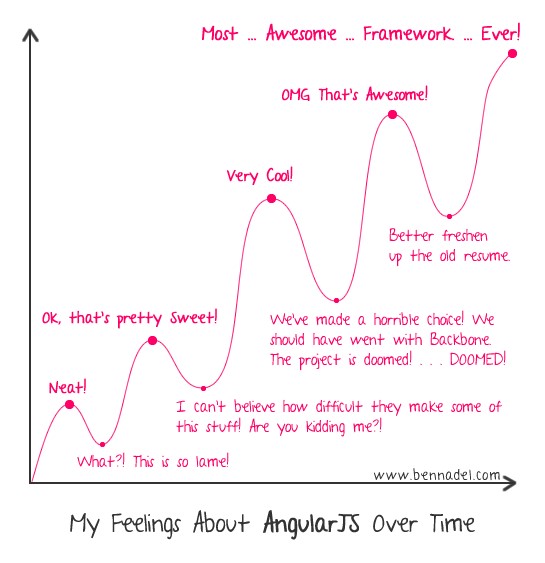
Back in those years it was not easy to create a production ready angular application. It was a long way until Angular reached a solid milestone with Universal (server-side rendering), ahead-of-time compilation (AOT), lazy loading and a solid bundling config working together nicely.

I'm going to be completely honest with you here, we almost give up with all the inconsistency, breaking changes and a sort of identity crisis that happened in the middle of the Angular 2+ development. We began testing and experimenting with the very first release of Angular 2.0.0-beta.0 on december 2015 with hopes of finding a framework that was clearly better than its predecessor (Angular 1.x also know as AngularJS). Also, we published an online demo of the app we are going to build in this Getting Started with Angular guide.

You can download all the source code of this angular free template by clicking the GET THE CODE button from above. So, in this complete tutorial you will learn all the concepts needed to create your first angular application. Also, we will explain how to connect this app with a remote API to handle data integration. To help you through your Angular learning process, we created an Angular app with a question and answer format (Q&A), where users will be able to ask, answer and vote questions. We will be covering a lot of ground at an introductory level, but also, you will find plenty of references to topics with greater depth. We will learn enough core Angular to get started and gain confidence that we can build any kind of app with Angular. As developers, we know that starting with a new technology can sometimes be a bit frustrating so want to help here. We want to help beginners through their first steps on the Angular world. We will start explaining the why's and basic concepts and then continue exploring more advanced notions. My goal in this Angular real world example tutorial is to provide a complete guide for you to learn Angular step by step.

For additional details visit their official documentation page. It's fully extensible and works very well with other libraries. Angular solves many of the challenges faced when developing single page, cross platform, performant applications. It is primarily sustained by Google together with an extended community of people and companies. It has a big community of millions of developers who choose Angular to build compelling user interfaces.Īngular is a JavaScript open-source front-end web application framework. Angular is a platform for building mobile and desktop web applications.


 0 kommentar(er)
0 kommentar(er)
